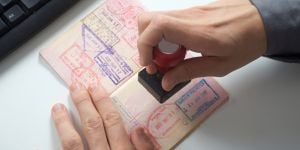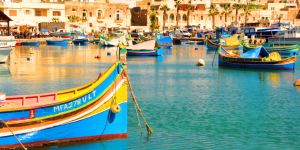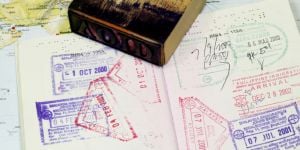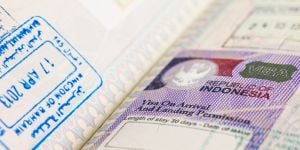
Marine comes from Paris. Following her first experience in Quebec in 2012, as an intern, she decided to move back to Canada, and see what the future beholds. Marine is now enjoying a fulfilling experience in Montreal and speaks to Expat.com about how she arrived to Canada for a second time and her day-to-day life in the country.
Hi, Marine. Where are you from, what are you doing in Canada and what were you doing before?
I'm from Paris, and I moved to Canada for two years on a Working Holiday Visa (WHV). The first time I came to Canada was in 2012 for an internship. When I was in France, I used to work in fashion, but I felt the need for something new.
What brought you to Montreal?
Montreal has an excellent quality of life. I already knew the city and I really like it. This is why I didn't look to move anywhere else but here. It's quite easy for French-speaking people to move here, especially when it comes to formalities. However, English is also widely spoken in Canada — Quebec is the only French-speaking province in Canada.

What is the process to move to Canada?
I was lucky enough to be selected for the Working Holiday Visa, so the process was quite easy. You just need to be less than 36 years old, and the rest is luck.
What is your favourite thing about Montreal and what is your least favourite thing?
I like that people are respectful and orderly. They usually queue up to take the bus and give way to people getting off the bus or subway. People are polite – which makes it way more pleasant to use public transportation – unlike in Paris. I don't like that the subway is less regular off-peak hours and the wall soundproofing in houses.
How would you describe Montreal in a few words?
Diversity, nature, culture, easy living.
What has surprised you the most about Montreal?
People's legendary kindness. Also, the speed of the whole moving process, especially the efficiency of the Canadian authorities. I did everything in a single day – from obtaining my social security number to applying for a land line and opening a bank account – without being told to come back another day or being referred to another department.
How easy or difficult it is to find accommodation in Montreal?
There's a wide range of accommodation for everyone including expats. Property owners can be reluctant at first to let their property since they can't check your credit history. Even though in Quebec property owners are not allowed to request a deposit, I offered a month and a half's rent to secure the place – and he agreed rather easily! To find the house, I visited the classifieds of many websites and joined Facebook groups. In two weeks and about 15 visits, I signed a one-year lease. However, keep in mind that it can be more difficult to find accommodation during some periods of the year, especially in winter.
What are the year's biggest holidays or events in Montreal?
In early June, Francofolies, marks the beginning of the festivals season. There's something for all tastes – ranging from jazz, laughter, art, etc. –, and most of the events are free. The whole place is lively till the end of summer.

How is the transportation system in Montreal? How do you move around?
The city has a subway, buses, and bixis (bikes) – there are many cycling tracks around Montreal that make commuting pleasant. I use the subway when I'm not walking, but usually, I walk anything between five to ten kilometres daily.
How is everyday life for you in Montreal?
I've been exploring the city, taking random pictures, strolling the streets, job hunting, updating my resume, planning interviews, etc..
What do you do in your free time?
Most of my free time I spent in restaurants enjoying good food and new flavours. I'm also active on the social networks and stay engaged with my community.
Are there good options for people who enjoy nightlife?
There's something for everyone in Montreal, as in most big cities worldwide – nightclubs, pubs, rooftop bars, and karaoke. However, most of these places usually close around 2 or 3 am at the latest.
What new habits have you developed in Montreal and what old habits have you quit?
I've just started getting used to the pace of life in Montreal. Everything begins and finishes earlier than what I am used to – people get up, start their tasks, and finish the day much earlier. I've not quit any old habits yet as it hasn't been long since I arrived. However, I hope to become more relaxed and less grumpy in the long run – and that's going to be a real challenge!

What is your opinion on the cost of living in Montreal?
It's easy to forget the taxes when you do shopping, as they are only added at the cash point. I still convert everything to euros, so to my mind, things are relatively cheap. However, this attitude has to change soon, when I will start receiving my salaries in Canadian dollars. Transportation tickets cost about $ 3.25 per journey, and the monthly unlimited card costs $ 80. A pint of beer costs between $ 4 and $ 10 depending on the type, location, and time. A fresh baguette will never cost less than $ 2.50 (or else I want the address).
If you could move to Montreal all over again, what would you do differently?
I moved to Montreal with my two suitcases and found accommodation and a job in my field of expertise within six weeks. I think this is a good start, and there's nothing I would change.
What do you think of the local cuisine? What are your favourite dishes?
I like the poutine, which is meat which with mozzarella-like cheese on fries. There are many combinations, and I love all of them. The Chinese pie, which is chopped parsley with corn is also one of my favourites, not to mention smoked meat sandwich. The “pouding du chomeur” is a nice dessert made of flour and honey sugar. I also like beaver tails, flat doughnuts with all kinds of toppings – chocolate, fruity, or anything sweet. Maple syrup is also delicious. As you can probably tell, I'm a real foodie.

Give us some useful tips that expatriates-to-be in Montreal will benefit from.
Make sure to seek all relevant information before moving and start getting organised well in advance. On the other hand, don't commit to any accommodation before you come in the country and see for yourself – everything is so much easier done on the spot.
If you had to advise an expat on five items to bring with them to Montreal, what would they be?
If you're moving with your electronic devices, you will need an adapter and a transformer. Also, make sure to take your favourite hygienic products and cosmetics, as some of them may either not be available on the spot or too costly. Bring your medication, as you can be misled by self-service drug stores. It's also a good idea to take a soft copy of all the important documents, such as your identity card, diplomas, tax declarations, insurance, etc..
What are your plans for the future?
I hope to stay here, and apply for permanent residency if everything goes as planned in the two coming years.




















